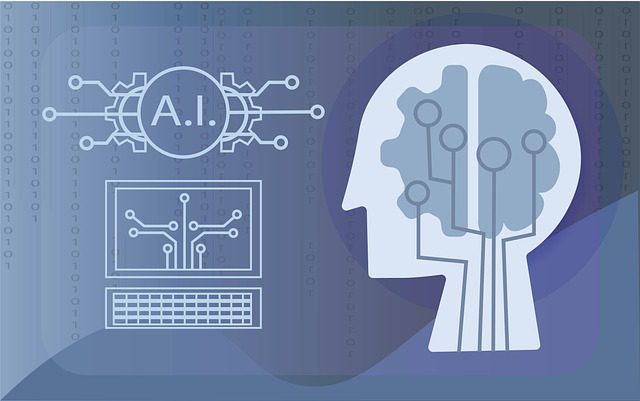Will AI End the Search Era? Here’s What You Need to Know

Summary
This article explores how AI is transforming web searches, offering users a more intuitive experience that poses a challenge to traditional SEO strategies. Read on to learn how your organization can secure a competitive edge by optimizing for both AI and conventional search engines.
By Maria Geokezas, Chief Operating Officer at Heinz Marketing
Businesses have invested years creating and curating SEO-friendly content to drive website traffic. Now the question is, will AI take it all away?
So far, Google remains tight-lipped about how much ChatGPT and other AI services have impacted its use. But we can assume it’s been significant based on Google’s mad dash to release its built-in AI tools.
But what does that mean for your website strategy?
For now, it’s best to treat search and generative AI like two sides of the same coin, and to use them both to your advantage.
Below, we consider why people are switching to AI and what businesses should do to drive qualified website traffic as AI adoption grows.
AI Creates a User-First Experience
First, it’s important you understand why AI has gained so much steam. One of the reasons is that generative AI creates a better user experience than search.
With search, you type in your query and scroll through tens of results to see if anything matches what you’re looking for. Then – even once you find what you need – you’re left combing the webpage for the specific information you’re after, tucked in somewhere between the SEO keywords.
Because websites cater to SEO and not the user, even searches that could’ve been answered in a couple hundred words are often thousands.
If you’ve ever looked up a recipe, you know what I mean. You’re left scrolling and scanning to find an ingredient list way at the bottom of the page—not a great experience!
On the other hand, AI feeds you what you asked for in a matter of seconds. Even if the initial results aren’t what you need, you can refine them with further information, almost like having a conversation. It’s a far cry from the bouncing around search requires.
That ease of use is the primary reason AI is stealing away search traffic. But there are still plenty of reasons for people to turn to search. So, you don’t want to write it off completely.
You just need to understand how to keep leads and customers coming to your website, even as AI adoption continues.
3 Smart Ways to Make Your Website More Useful Than AI
While AI’s user-first experience is a huge draw, it lacks one key component: references. This means that if an AI query result includes information from your website, the end user won’t know where it came from.
It may seem unfair that you spent time and money creating valuable content without recognition, but that crucial flaw is also a gift.
People want to know where they’re getting their information, especially before they buy. So, if you make your website a valuable resource to your customers, you give your business an edge over AI.
Drive Search Through Relationships
In most cases, AI can only provide a general overview of a topic, but it’s void of expertise. That’s why building a trusted relationship with your leads and customers is crucial to maintaining traffic to your website.
After all, you’re probably not going to turn to ChatGPT if your pipes start leaking. You’re going to turn to a trusted professional resource.
To become the trusted authority for your customers, you have to focus on who, not how. Who are you to your customers? Who would they trust to solve their problem? When we know, like, and trust the source, we’ll keep coming back for the how.
Remember, AI will only get better at providing the how-to details, but it can never become the “who” behind it.
Show, Don’t Tell
Another way you can make your website stand out against AI is to adopt a show, don’t tell strategy.
What does that mean?
Demonstration is the most powerful form of reasoning—and proof—especially if you offer a product or service targeted to a sophisticated market.
While everyone is going to AI for a quick overview, only you can dig deep into your process or product and demonstrate what it can do.
You want to use detailed case studies and product demonstrations across your website. Don’t just place them on a single “customer stories” page. Strategically spread them throughout your content to create an immersive experience visitors won’t get from an AI query.
Another way to use demonstrations is to place them on specialized web pages optimized for your most transactional keywords that people are still using search for, not AI.
Switch to Specialized Webpages
If you’ve optimized your entire website for high-level search terms, you’ll want to readjust to focus on page-level optimization.
For example, having a specialized landing page for each service or product feature you offer.
Designated, specialized landing pages with a focus on middle or low-funnel keywords can help boost conversion rates and can help lower acquisition costs.
More than that, landing pages better align with emerging user behavior trends—like starting with AI and then switching to traditional search for more information. Landing pages create a linear user experience that goes deep on a single topic, much like the experience of AI. So it’s a natural progression.
Plus, the content on your specialized landing page serves a dual purpose. It’s more likely to be picked up by AI (thus priming your audience) and more likely to come up when they search due to the highly targeted search terms.
Bottom Line: Search Will Never Be the Same
Now that generative AI has been let out of the box, it won’t go back in. That’s not to say that search engines will go away. But they will continue to change.
AI is already better at understanding user intent, processing natural language queries, and generating personalized results than traditional search. So, as AI evolves, it can be integrated into search, making it faster and more intuitive.
For that reason, businesses need to optimize their websites not just for search or AI but both.






